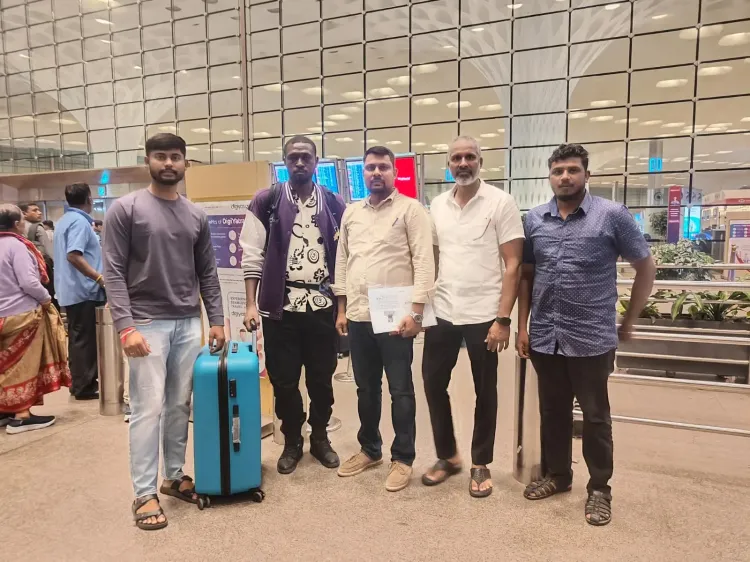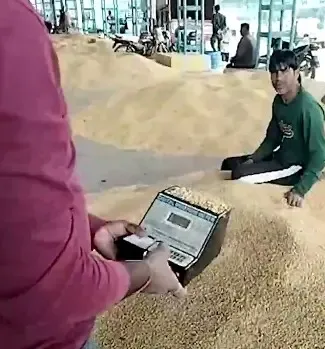Why Did Hyderabad Police Deem It Necessary to Deport a Sudanese National?

Synopsis
Key Takeaways
- Hyderabad Police take strong measures against drug crime.
- Deportation highlights challenges with overstayed visas.
- Collaboration with foreign governments is essential for deportation.
- Continuous drug trafficking poses risks to national security.
- Law enforcement remains vigilant against illicit activities.
Hyderabad, Sep 14 (NationPress) The Hyderabad Police have deported a Sudanese national, previously arrested in two drug-related incidents, who had been overstaying in India.
The Hyderabad Narcotics Enforcement Wing (H-NEW), responsible for the arrest of Mohamed Yagoub Mohamed Ali, stated that his deportation was necessary to avert any further involvement in activities harmful to national security.
Police reports indicate that he arrived in India on a student visa in July 2012, enrolling in a BCA program at PG College, Secunderabad, under Osmania University. After relocating to ECIL and renting a house, he dropped out of his BCA program due to financial constraints and began associating with a Tanzanian national living in the same residence.
In 2018, Kushaiguda police apprehended him in connection with an NDPS case, during which eight wet Ganja plants were seized. Following his time in Chanchalguda Jail and a lengthy trial, he was released on bail after more than a year.
By 2020, he had reconnected with a Tanzanian national who used drugs, moving to Paramount Colony, Tolichowki. In 2021, the Rajendranagar Police conducted a raid, resulting in the seizure of seven grams of charas and heroin from Mohamed Ali. He faced arrest, imprisonment, and was released on bail after another year.
Deputy Commissioner of Police, Y.V.S. Sudheendra, noted that he continued engaging in drug trafficking, maintaining connections with drug dealers. On the night of October 24-25, 2024, acting on reliable information, the HNEW team arrested him along with another Sudanese, Mohammed AbdulRhman Osman, who was found with a narcotic drug (MDMA).
Despite his passport expiring in 2016 and visa in 2013, Mohamed Ali had overstayed in India for over 12 years. Lacking valid travel documents, he was involved in the illegal drug trade, prompting the decision for his deportation.
The HNEW initiated the deportation process through the Foreigners Regional Registration Office (FRRO) in Hyderabad. An emergency travel document was acquired from the Sudan High Commission in New Delhi, given the expiration of his passport and visa. An exit permit was also obtained from the FRRO in Hyderabad, with travel arranged from Chhatrapati Shivaji International Airport, Mumbai.
A team from HNEW, led by Inspector G.S. Daniel, successfully escorted and deported the individual back to Sudan.









